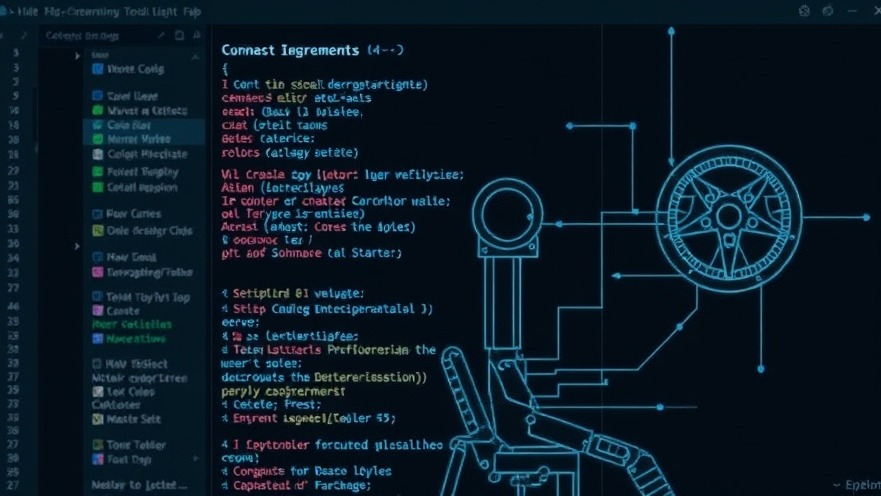
Claude Code: Redefining Agentic Coding for Developers
Anthropic has unveiled a groundbreaking tool for developers called Claude Code, which operates as an agentic coding assistant. This beta research preview harnesses the power of the Claude 3.7 Sonnet model to not only automate tedious coding tasks but also enhance the developer experience through natural language commands.
What Makes Claude Code Unique?
Unlike conventional coding assistants, Claude Code functions directly in the terminal, offering flexibility for developers to use it with any integrated development environment (IDE). As Erik Schluntz, Anthropic engineer, noted, the command line interface provides a seamless way to integrate with familiar coding tools like Cursor, VS Code, and Xcode. This feature empowers developers to initiate tasks in Claude Code and then transition to an IDE for more detailed work.
Core Functionality: Automating the Coding Process
The capabilities of Claude Code are preparing to revolutionize coding efficiency. Developers can request Claude Code to handle various tasks, including:
Explaining complex code segments
Refactoring outdated code
Automating Git operations like merges and pull requests
Generating documentation and running tests
For example, developers have reported Claude Code streamlining workflow by automatically implementing changes in codebases, such as adding features in applications built with Next.js. However, there are concerns over its limited ability to adapt to non-React codebases, highlighting room for improvement in context recognition.
Understanding Strengths and Limitations
Per initial user feedback, Claude Code has been met with a positive reception, especially for its intuitive interface and capability to simplify complex refactoring tasks. Nevertheless, it's essential to address some drawbacks, such as the high operational costs and API rate limits that users have highlighted.
The Cost Factor
Claude Code operates on a token-based model, translating developer interactions into costs that can escalate quickly. Reports suggest that daily operational expenses might range between $5-10 per developer, with peak usage exceeding $100 hourly. Balancing productivity gains against financial viability will be crucial for teams considering integration into their workflows.
Enhancing Development with Agentic AI
Claude Code is not alone in the agentic AI space. Other tools like GitHub Copilot and various LLM applications are also stepping into coding automation. However, Claude Code's design reflects Anthropic's unique focus on creating a deeply integrated coding experience that aligns with established workflows. By significantly boosting productivity, tools like Claude Code are likely to become indispensable resources for developers looking to harness AI in their daily tasks.
What Lies Ahead for Claude Code?
As a research preview, Claude Code's development is intended to be adaptive, driven by user feedback and operational metrics. Enthusiastic reviews indicate the potential for future iterations to bring enhanced stability, increased tool execution reliability, and improved contextual awareness—elements that could dictate its success or failure in the long run.
Strategies for Maximizing Benefits
For developers eager to explore Claude Code, several strategies can improve the utilization of this tool:
Start with simple prompts to understand its capacity for context-sensitive responses.
Incorporate it gradually into your existing workflows to find optimal integration points.
Monitor costs while testing various use cases to develop a balanced approach to its implementation.
Conclusion: The Future of Coding?
Claude Code marks a significant leap forward in the realm of coding automation by merging agentic AI with traditional development practices. While potential limitations exist, the innovative features and the support of the Claude 3.7 Sonnet model present a promising future for developers. As teams evaluate their operational strategies, now may be the ideal time to integrate Claude Code into their workflows for brevity, precision, and enhanced feature implementation.
 Add Row
Add Row  Add
Add 




 Add Row
Add Row  Add
Add 

Write A Comment